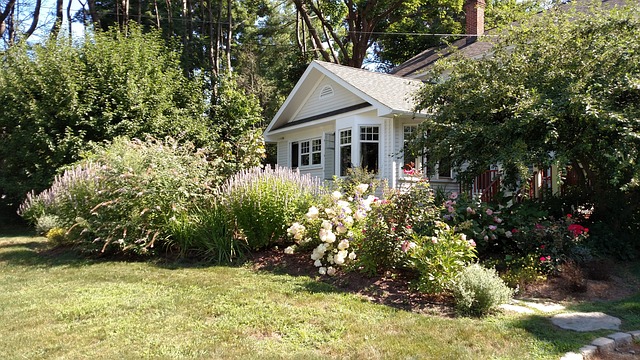Leaf collection and mulching are essential practices for maintaining a healthy, vibrant yard, preventing waste, and contributing to Yard Waste Removal and Recycling. Mulch supports plant growth, conserves moisture, suppresses weeds, and moderates temperature extremes. Efficient management of yard waste through composting and recycling reduces landfill waste, promoting environmental conservation and fostering eco-friendly communities.
Looking to transform your yard? Discover the power of leaf collection and mulching—simple practices with profound benefits. This article guides you through understanding these eco-friendly techniques, efficiently managing leaves, and selecting the perfect mulch for your garden. Learn how proper yard waste removal and recycling can enhance soil health, suppress weeds, and contribute to a lush, vibrant outdoor space. Get ready to unlock your garden’s full potential.
- Understanding Leaf Collection and Mulching: Benefits for Your Yard
- The Process of Efficient Leaf Management: From Collection to Recycling
- Choosing the Right Mulch for Your Garden: Types and Applications
Understanding Leaf Collection and Mulching: Benefits for Your Yard

Leaf collection and mulching are essential practices for maintaining a healthy and vibrant yard. By understanding the benefits of these services, homeowners can enhance their outdoor space’s overall appearance and ecosystem. Leaf collection goes beyond mere aesthetics; it plays a crucial role in Yard Waste Removal and Recycling. Fallen leaves, if left unattended, can smother grass, block sunlight from reaching plants, and create an unkempt look. Professional leaf collection ensures that these organic materials are removed efficiently, preventing potential damage to your yard.
Mulching, on the other hand, offers a sustainable solution by recycling these yard waste materials. When leaves are collected and transformed into nutrient-rich mulch, they can be redistributed across the yard. This natural process not only keeps your garden free from debris but also provides essential nutrients that support plant growth. Mulch acts as a protective layer, retaining moisture in the soil, suppressing weeds, and moderating temperature extremes—all of which contribute to a healthier, more resilient yard throughout the seasons.
The Process of Efficient Leaf Management: From Collection to Recycling

Choosing the Right Mulch for Your Garden: Types and Applications

When it comes to enhancing your garden’s health and aesthetics, selecting the appropriate mulch is a strategic decision. Different types of mulch cater to diverse needs, making it essential to understand their applications. Organic mulches, derived from natural sources like wood chips, straw, or compost, enrich the soil with nutrients as they decompose, promoting plant growth. These options are ideal for general yard waste removal and recycling, contributing to a sustainable gardening practice.
On the other hand, inorganic mulches such as stones, gravel, or rubber chips offer long-lasting solutions. They effectively suppress weeds, conserve moisture in the soil, and provide a consistent, low-maintenance barrier. Inorganic mulches are particularly suitable for areas requiring minimal maintenance or where organic materials are not readily available through local yard waste removal services.
Leaf collection and mulching are simple yet powerful tools for any homeowner aiming to enhance their yard’s health and aesthetics. By understanding the benefits and implementing efficient management practices, including proper mulch selection, you can significantly reduce yard waste removal costs while fostering a vibrant garden ecosystem. Embrace these sustainable practices to recycle natural resources and watch your outdoor space flourish.






